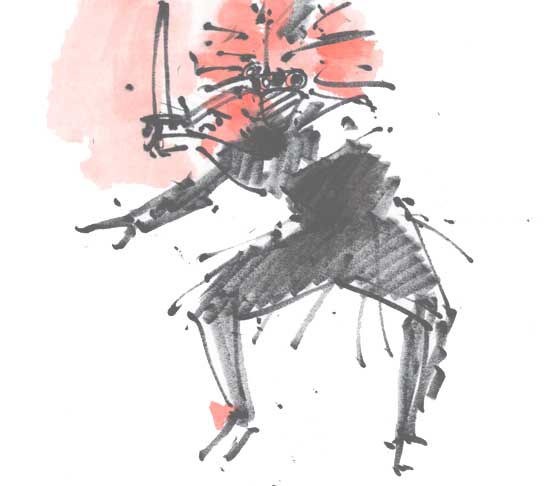|
The masks :
For the Dogon,
the village space guarantees order and security. On the other hand,
the ambivalence of the bush is notorious. It can be both dangerous and
beneficial. It is the world of the invisible. There are all types of
evil spirits roaming about. But the bush is also a source of life where
food and medicinal plants abound. Wild animals have gifts for clairvoyance.
When a Dogon travels and sleeps in the bush, his totem-animal (Ba-Binu
- see page 21) will look after him.
It is on the occasion
of a Dama that new masks are carved. The fibres for the costumes are
prepaired and painted in the bush. Whereas the wooden headpieces may
be carved, hidden from the sight of others, in the village. To attain
their full magical powers, they are to be submitted to various rituals.
In Sangha, the Wala Banga is to make a sacrifice for all masks on the
mask altar (Wala). The owners of the masks do not assist. Each individual,
however, will make sacrifices on his private altar in order to seek
protection against sorcery. In some other villages, mask owners may
want to seek protection through the intervention of mask dignitaries
at Yougo Dogorou.
Today mask carving
outside a ritual context has become frequent. The sale of such objects
to tourists is no problem at all. But the sale of a mask that is still
"active" in a ritual sense must be done with utmost care and requires
ritual precautions.

|